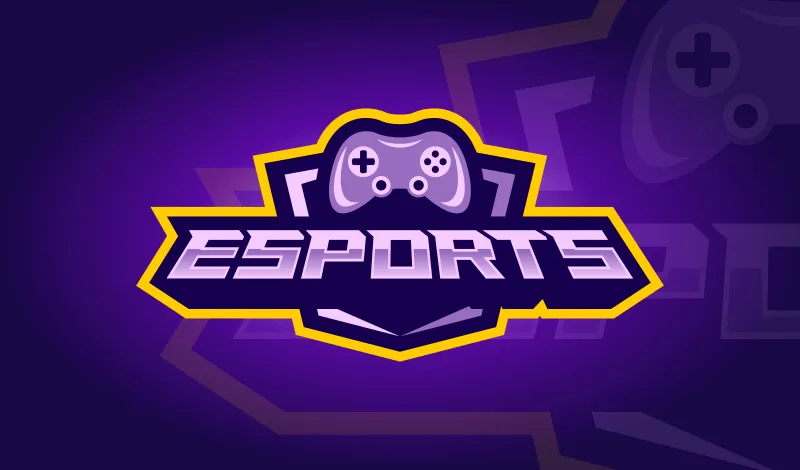
Esports have rapidly evolved from niche hobby to global phenomenon, captivating millions of fans and generating billions in revenue. What began as a modest video game competition in a university lab has grown into a high-stakes industry with professional athletes, sold-out arenas, and international tournaments streamed by millions. Whether you’re a seasoned gamer, a curious newcomer, or a sports enthusiast exploring the digital frontier, this blog dives deep into 25 fascinating and verified facts about esports. From record-breaking prize pools and legendary players to groundbreaking technology and educational opportunities, each fact reveals a unique layer of this dynamic and ever-expanding world. Get ready to explore the numbers, milestones, and stories that make esports one of the most exciting industries of the 21st century.
1. First Esports Event (1972)
The first known esports competition took place in 1972 at Stanford University, where students competed in the game Spacewar!—a pioneering space combat video game developed in the early 1960s. The prize for the winner was a subscription to Rolling Stone magazine, marking a humble but historic beginning for what would become a multi-billion-dollar industry. This event, known as the Intergalactic Spacewar Olympics, is widely recognized as the birth of competitive gaming.
2. South Korea: Birthplace of Modern Esports
South Korea is often hailed as the birthplace of modern esports, especially due to the explosive popularity of StarCraft in the late 1990s. The country established the Korea Esports Association (KeSPA) to regulate and promote esports, and built dedicated arenas like the Busan Esports Arena. South Korea’s government support, high-speed internet infrastructure, and cultural acceptance of gaming helped transform esports into a legitimate career path.
3. Global Audience Size (577 Million by 2024)
Esports has seen exponential growth in viewership, with the global audience projected to reach 577 million by 2024. This includes both casual viewers and dedicated fans who follow tournaments, teams, and streamers. The rise of streaming platforms and international competitions has made esports a mainstream entertainment option, rivaling traditional sports in popularity.
4. League of Legends World Championship Viewership
League of Legends is one of the most popular esports titles globally. Its annual World Championship consistently draws millions of viewers, with the 2019 edition attracting over 100 million unique viewers—a number comparable to the Super Bowl. The event features top-tier teams from around the world and is broadcast in multiple languages across platforms like Twitch and YouTube.
5. Highest-Earning Esports Player: Johan “N0tail” Sundstein
Johan “N0tail” Sundstein, a professional Dota 2 player from Denmark, holds the record as the highest-earning esports athlete, having earned over $7 million in prize money. His success is largely attributed to multiple victories at The International, the most prestigious Dota 2 tournament. N0tail is also known for his leadership and strategic prowess as a team captain.
6. Largest Prize Pool: The International 2019
The International 2019, a Dota 2 tournament hosted by Valve Corporation, boasted a staggering $34 million prize pool—the largest in esports history. This amount was crowdfunded through in-game purchases by fans, showcasing the community’s support and the financial potential of esports. The winning team, OG, took home over $15 million.
7. Esports Industry Revenue (Over $1.6 Billion by 2023)
The esports industry’s revenue was projected to surpass $1.6 billion by 2023, driven by sponsorships, media rights, merchandise, and ticket sales. Major brands like Coca-Cola, Intel, and Red Bull have invested heavily in esports, recognizing its marketing potential among younger demographics.
8. Organization Valuation: Team Liquid and Cloud9
Top esports organizations such as Team Liquid and Cloud9 are valued at over $300 million, placing them on par with traditional sports franchises. These organizations field teams across multiple games, including League of Legends, Valorant, and Counter-Strike, and generate revenue through sponsorships, merchandise, and content creation.
9. Streaming Platforms: Twitch and YouTube Gaming
Platforms like Twitch and YouTube Gaming are essential to the esports ecosystem, enabling millions of fans to watch live matches, player streams, and behind-the-scenes content. Twitch alone hosts thousands of esports broadcasts daily, and its interactive features like chat and subscriptions enhance viewer engagement.
10. Six-Figure Salaries for Players
Many professional esports players earn six-figure salaries, not including additional income from sponsorships, streaming, and merchandise. Salaries vary by game and region, but top-tier players in games like League of Legends, Overwatch, and Call of Duty often receive lucrative contracts from their teams.
11. Training Regimen: 8–12 Hours Daily
Esports athletes train rigorously, often practicing for 8 to 12 hours per day. Their regimen includes mechanical drills, strategy sessions, team scrims, and physical fitness. Maintaining peak performance requires discipline, focus, and mental resilience, similar to traditional sports training.
12. Average Age and Retirement
The average age of a professional esports player is around 24, with many retiring in their late 20s due to burnout, declining reflexes, or shifting career goals. Early retirement is common, but many players transition into coaching, streaming, or content creation.
13. Female Esports Stars
Female players like Sasha “Scarlett” Hostyn (StarCraft II) and Katherine “Mystik” Gunn (Halo) have broken barriers in the male-dominated esports scene. Scarlett became the first woman to win a major StarCraft II tournament, while Mystik won the WCG Ultimate Gamer competition and earned over $100,000 in prize money.
14. Support Staff: Coaches and Analysts
Esports teams often employ coaches, analysts, psychologists, and nutritionists to support player development. Coaches help refine strategies and communication, while analysts study opponents’ gameplay. This professional infrastructure mirrors traditional sports teams.
15. Legendary Team: SK Telecom T1 and Faker
SK Telecom T1, led by Lee “Faker” Sang-hyeok, is one of the most successful teams in League of Legends history. Faker is considered the greatest LoL player of all time, having won three World Championships and revolutionized mid-lane gameplay with his mechanical skill and game sense.
16. Esports Scholarships
Universities like Robert Morris University and UC Irvine offer esports scholarships, recognizing competitive gaming as a legitimate extracurricular activity. Scholarships can cover up to 50% of tuition and housing, and recipients compete in collegiate leagues like League of Legends’ College Championship.
17. Educational Benefits
Esports programs in schools help students develop teamwork, communication, and problem-solving skills. These soft skills are transferable to academic and professional settings, making esports a valuable educational tool beyond gaming.
18. Curriculum Integration
Some schools have integrated esports into their curriculum, teaching subjects like game design, marketing, broadcasting, and event management. This prepares students for careers in the gaming industry and fosters innovation in digital media.
19. Career Pathways
Esports opens doors to careers in game development, broadcasting, coaching, event planning, and content creation. Many former players become streamers, analysts, or developers, contributing to the industry’s growth from multiple angles.
20. UC Irvine’s Esports Arena
The University of California, Irvine was one of the first major universities to launch a full-fledged esports program, complete with a dedicated arena, coaching staff, and academic support. Their program serves as a model for collegiate esports nationwide.
21. VR and AR in Esports
Virtual Reality (VR) and Augmented Reality (AR) are poised to revolutionize esports by offering immersive gameplay experiences. Games like Echo Arena and Beat Saber are already exploring competitive VR formats, and future tournaments may incorporate mixed-reality elements.
22. Olympic Potential
The International Olympic Committee (IOC) has explored the inclusion of esports in future Olympic Games. While debates continue over which games qualify and how to regulate them, esports’ global appeal makes it a strong candidate for Olympic recognition.
23. Mobile Esports Growth
Mobile esports is booming, especially in Asia, with games like PUBG Mobile, Mobile Legends, and Free Fire attracting millions of players and viewers. Mobile tournaments often fill stadiums and offer prize pools in the hundreds of thousands of dollars.
24. AI Integration
Artificial Intelligence (AI) is being used in esports for training simulations, opponent analysis, and game balancing. AI-driven bots help players practice, and machine learning models can predict match outcomes or suggest strategies.
25. Cognitive Benefits
Playing esports can improve hand-eye coordination, reaction time, strategic thinking, and multitasking. Studies have shown that gamers often outperform non-gamers in tasks requiring quick decision-making and spatial awareness, making esports both mentally stimulating and skill-enhancing.
Frequently Asked Questions about Esports:
1. What types of games are included in Esports?
Esports encompasses a wide variety of competitive video games. Any game where players compete against each other can be considered an esport. Popular genres include:
- Multiplayer Online Battle Arenas (MOBAs) – e.g., League of Legends, Dota 2
- Battle Royales – e.g., PUBG, Fortnite
- Real-Time Strategy (RTS) – e.g., StarCraft II
- First-Person Shooters (FPS) – e.g., Counter-Strike: Global Offensive, Call of Duty
- Fighting Games – e.g., Street Fighter, Super Smash Bros.
- Sports Simulations – e.g., FIFA, NBA 2K
2. Where can I watch live Esports events?
Most esports matches are streamed live on platforms such as Twitch.tv, YouTube Gaming, and Facebook Gaming. These platforms host official broadcasts from tournament organizers and allow fans to watch matches in real-time, often with professional commentary and analysis.
3. What do the listed match times refer to?
Match times typically indicate the start of the actual game, not the pre-show or studio coverage. These times are often geo-located, meaning they adjust to the viewer’s local time zone for convenience.
4. Which Esports games are most commonly covered?
Popular esports titles include:
- Overwatch
- League of Legends
- Dota 2
- CS:GO
- Hearthstone
- StarCraft II
- Smite
- Fortnite
- Rainbow Six Siege
- Rocket League
- Call of Duty
- World of Warcraft
- Arena of Valor (King of Glory)
5. Why aren’t all esports matches listed on some platforms?
Many esports platforms prioritize popular and high-profile events to ensure quality coverage. However, they continuously evaluate and expand their offerings based on user demand and game popularity.
6. What features do esports platforms offer to users?
Features may include:
- Custom filters for games, teams, and tournaments
- Favorites to track preferred teams or events
- Widgets for embedding esports schedules on personal websites
- Search tools for quick access to matches and tournaments
7. How can I search for my favorite team or tournament?
Use the search bar on esports platforms to enter the name of your preferred team, tournament, or match. Results are generated instantly, helping you find relevant content quickly.
8. How do I save and filter my esports preferences?
Once you select a team or tournament as a favorite, it becomes a clickable filter option. These preferences are often saved using cookies, allowing for a personalized viewing experience.
9. What is the “Favorite” feature used for?
The Favorite feature lets users track specific teams or tournaments. It helps refine search results and ensures that users see updates and schedules related to their chosen preferences.
10. What is an Esportsguide widget?
An Esportsguide widget is a compact, customizable esports schedule that can be embedded into websites or blogs. It allows site owners to display live match schedules tailored to specific games or teams.
11. How do I create my own esports widget?
To create a widget:
- Choose the games, tournaments, or teams you want to feature
- Enter your email address
- Copy the generated HTML code
- Paste it into your website’s code to embed the schedule
12. Can beginners participate in Esports?
Absolutely! Esports is accessible to everyone. All you need is a gaming console or PC, a stable internet connection, and a copy of the game. Many platforms and communities welcome newcomers and offer opportunities to learn and compete.
13. What are the best platforms to watch live Esports games?
The top platforms include:
- Twitch.tv – the leading platform for live gaming streams
- YouTube Gaming – offers live streams and recorded content
- Facebook Gaming – growing in popularity for mobile and casual esports
14. How do players win in Esports games?
Winning conditions vary by game:
- League of Legends/Dota 2: Destroy the enemy’s main structure (Nexus/Ancient)
- StarCraft II: Eliminate all opponent buildings
- Hearthstone: Reduce the opponent’s health to zero
- CS:GO: Win 16 rounds by planting/defusing bombs or eliminating opponents
15. What should I consider when choosing an Esports team to support or bet on?
Key factors include:
- Roster changes
- Recent performance
- Head-to-head history
- Tournament odds Evaluating these can help determine whether a team is a good bet or worth following.









